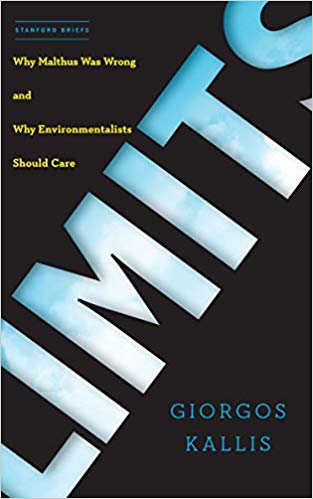Strike Debt Bay Area Economics Reading Group: "Limits."
 We meet once a month. This month we are reading the first three chapters of "Limits (Why Malthus Was Wrong and Why Environmentalists Should Care" by Giorgos Kallis (Amazon, Stanford University Press). Previous books er have discussed include Kate Raworth's Doughnut Economics and Ellen Brown's Banking for the People.
We meet once a month. This month we are reading the first three chapters of "Limits (Why Malthus Was Wrong and Why Environmentalists Should Care" by Giorgos Kallis (Amazon, Stanford University Press). Previous books er have discussed include Kate Raworth's Doughnut Economics and Ellen Brown's Banking for the People.
"Western culture is infatuated with the dream of going beyond, even as it is increasingly haunted by the specter of apocalypse: drought, famine, nuclear winter. How did we come to think of the planet and its limits as we do? This book reclaims, redefines, and makes an impassioned plea for limits—a notion central to environmentalism—clearing them from their association with Malthusianism and the ideology and politics that go along with it. Giorgos Kallis rereads reverend-economist Thomas Robert Malthus and his legacy, separating limits and scarcity, two notions that have long been conflated in both environmental and economic thought. Limits are not something out there, a property of nature to be deciphered by scientists, but a choice that confronts us, one that, paradoxically, is part and parcel of the pursuit of freedom. Taking us from ancient Greece to Malthus, from hunter-gatherers to the Romantics, from anarchist feminists to 1970s radical environmentalists, Limits shows us how an institutionalized culture of sharing can make possible the collective self-limitation we so urgently need." - Book description.
Join us!
Get Involved
If you'd like to help with maintaining or developing the website, contact us.
Publish
Publish your stories and upcoming events on Indybay.


